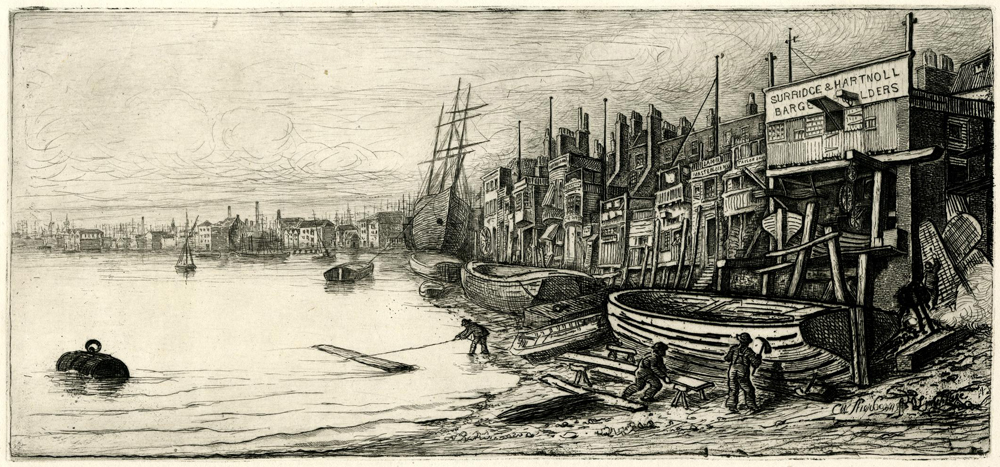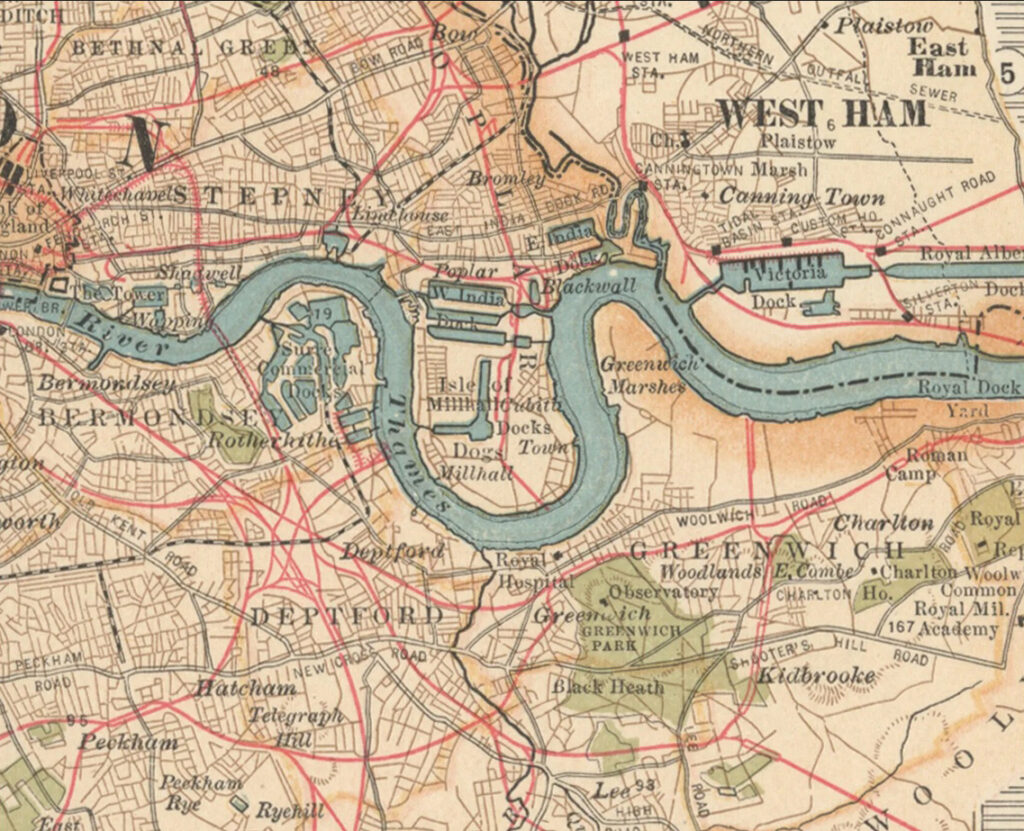We reached Whickham Parish Church in County Durham, England at the end of a long day of exploration. I knew that two of my ancestors had been baptized in the little Norman-style church, but I didn’t know whether any family members were buried in its large cemetery. The weather was cool and rainy and the church was locked, so, after giving the cemetery a quick glance, we turned to leave. At that point, our guide drew our attention to an old gravestone to the left of the church door.
“What you say the family name was?” he asked.
“Mitcheson,” I replied.
Only part of the inscription was legible, but enough remained to identify the couple buried there. This was the grave of my ancestors Joseph Mitcheson (1746-1821) and his wife Margaret Philipson (1756-1804). I like to imagine that, knowing we had come all the way from Canada, Joseph and Margaret were trying to get our attention. They didn’t want us to leave without finding them.
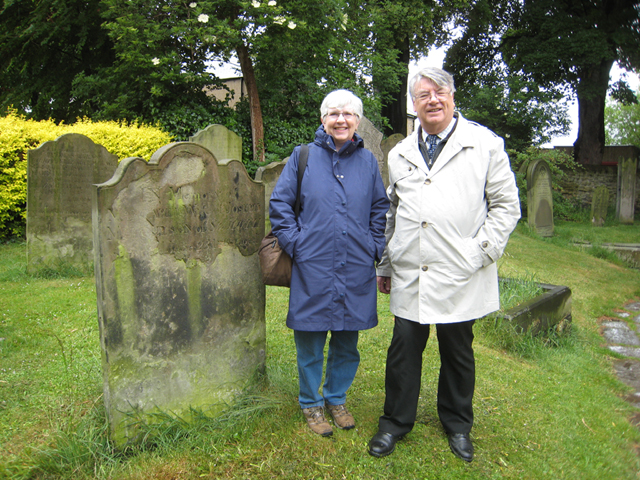
This couple is of special significance to my family tree. Two of their children, Mary Mitcheson Clark and Robert Mitcheson, moved to North America, and both are my direct ancestors. In 1844, Mary’s grandson, Stanley Clark Bagg, of Montreal, married his first cousin once removed, Catharine Mitcheson, daughter of Robert Mitcheson, of Philadelphia.1 This makes Joseph and Margaret simultaneously my four-times and five-times great-grandparents.
I know almost nothing about Margaret, and only a few bare facts about Joseph. He was born and baptized in Lanchester Parish, County Durham, in 1746, the youngest son of gentleman farmer Robert Mitcheson and his wife, Mary..2
When Robert died in 1784, he left most of his estate to Joseph.3 Joseph became what is known as a yeoman farmer, meaning he owned a small amount of property. Socially, a yeoman was notch above a tenant farmer, but below a gentleman.
Joseph Mitcheson, of Lanchester Parish, married Margaret Philipson, of Whickham Parish, by licence at Whickham Parish Church in 1774.4 They eventually had six children – four girls and two boys.
Before his father’s death, Joseph’s family seems to have moved frequently. According to family notes, Mary (1776-1856) was born at Stow House in the hamlet of Cornsay, Lanchester Parish. Again according to family stories, Robert (1779-1859) was born at Eland Hall, Ponteland, near Newcastle. I can’t confirm either of these accounts, but both children were baptized in Whickham. All of the couple’s other children – Margaret (1781-1864), William (1783-1857), Elizabeth (1786-?) and Jane (1793-1825) — were baptized at Lanchester Parish Church, so the family must have been living in the Lanchester area by 1781.
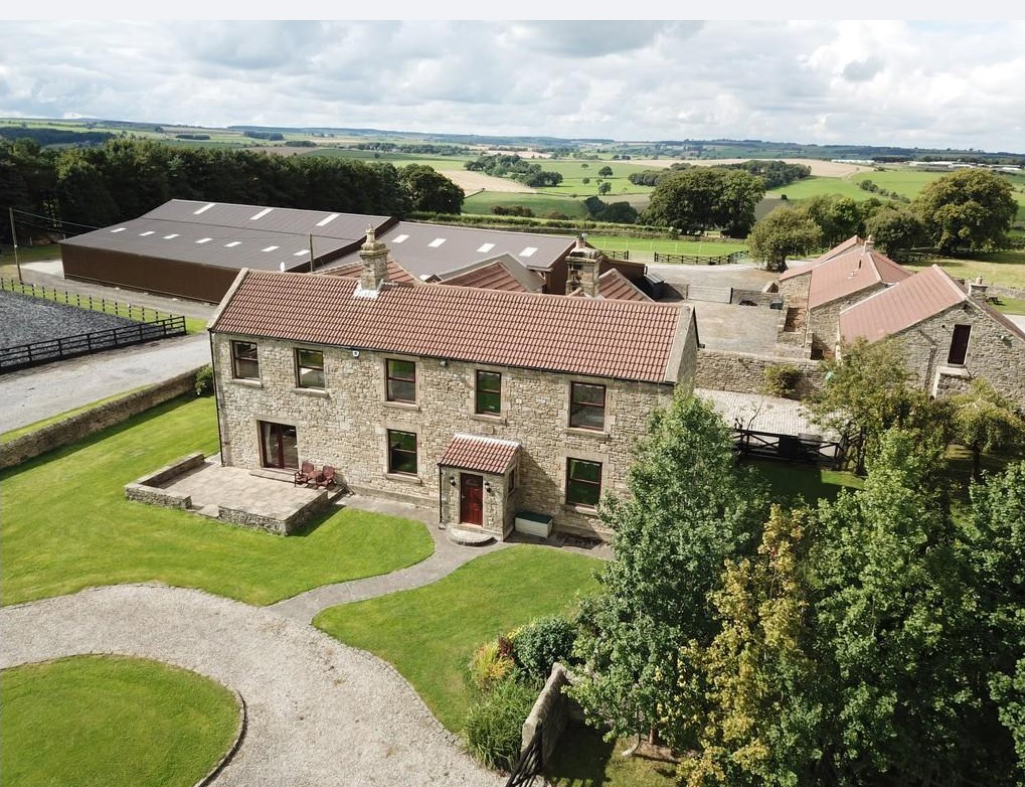
Fortunately, County Durham has kept its records of land tax returns. These lists showed who owned each property, who lived on it and whether the occupant was the owner or a tenant. In 1789, Joseph was living in Lanchester Parish on a property owned by John Stephenson, Esq., who may have been the husband of his aunt Jane Mitcheson. Meanwhile, Joseph was getting income from three properties that he rented out: a farm in Iveston that he had inherited from his father, and another farm in Witton Gilbert.5 Both were located in Lanchester Parish.
In addition, his wife had inherited property in the town of Swalwell from her parents. Married women’s property belonged to their husbands, so legally it belonged to Joseph and he collected rent from the house, or houses, on this land. Swalwell, a township in Whickham Parish on the River Derwent, was an important iron manufacturing center in the 18th century.
The tax records show that, by 1798, Joseph and his family had moved to Iveston, where It appears he farmed the land: in his will, written in 1803, Joseph bequeathed his “implements of husbandry”, as well as household goods and furniture, to his wife.6
Margaret died in 1804 and perhaps Joseph decided to give up farming after her death and move to Swalwell. The Durham tax records of 1810 show the farm properties at Iveston and Witton Gilbert were occupied by renters and Joseph was living on his Swalwell property, although it now belonged to his son Robert, an iron manufacturer.
When Joseph died in 1821, he left cash to his daughters and the farm in Witton Gilbert to his middle son, William. William lived in London, so he rented the farm to a tenant farmer. Joseph left the bulk of his estate to his older son, Robert, although by this time, Robert had settled in Philadelphia. The 1824 land tax records show that Robert rented out both the properties in Swalwell and in Iveston.
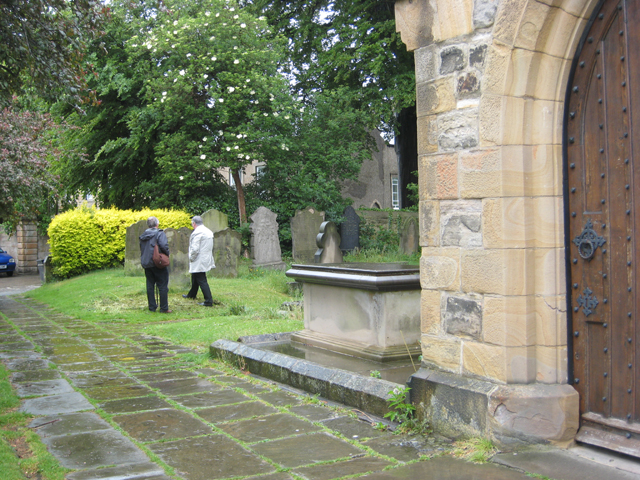
Two final remarks: I suspect that Joseph Mitcheson and Margaret Philipson’s grave was in a prominent location in Whickham Parish Cemetery because of her family’s prominence. The grave is near the front door of the church where everyone coming and going could see it. (See the link below to the story of the Philipson family, “Can Two Wrongs Make a Right?”)
My other thought is that, while Joseph was a farmer like his father, his children were the first generation to break new trails. In Montreal, Mary and her husband, John Clark, invested in real estate. In Philadelphia, Robert was involved in several different business ventures as a merchant, a manufacturer and a landlord. Meanwhile, son William was an anchor manufacturer. Did Joseph and Margaret encourage their children to be adventurous and to leave County Durham, or were the next generation just fortunate to live at a time when new opportunities beckoned? That is a question I can’t answer.
See also:
“Can Two Wrongs Make a Right?” Writing Up the Ancestors, May 4, 2022, https://www.writinguptheancestors.ca/2022/05/can-two-wrongs-make-a-right.html
“Robert Mitcheson’s Last Will and Testament” Writing Up the Ancestors, March 1, 2022, https://www.writinguptheancestors.ca/2022/03/robert-mitchesons-last-will-and-testament.html
“Mary Mitcheson Clark” Writing Up the Ancestors, May 16, 2014, https://www.writinguptheancestors.ca/2014/05/mary-mitcheson-clark.html
“The Mitcheson Family of Limehouse” Writing Up the Ancestors, Jan. 21, 2015, https://www.writinguptheancestors.ca/2015/01/the-mitcheson-family-of-limehouse.html
“The Mitcheson Sisters” Writing Up the Ancestors, May 18, 2022, https://www.writinguptheancestors.ca/2022/05/the-mitcheson-sisters.html
“Master Mariners in the Family” Writing Up the Ancestors, June 13, 2022, https://www.writinguptheancestors.ca/2022/06/master-mariners-in-the-family.html
An article about the life of Robert Mitcheson of Philadelphia will appear in the fall.
This article is also posted on the family history blog Genealogy Ensemble, https://genealogyensemble.com
Notes:
My husband and I made that trip in 2009. Our guide that day in Durham was retired professional genealogist Geoff Nicholson. Later, Geoff e-mailed me the whole memorial inscription, copied by the Northumberland and Durham My Family History Society in 1995. It said, “In memory of Margaret, wife of Joseph Mitcheson of Swalwell who died June 23 1804 aged 49? years. The above Joseph Mitcheson died June 1821 aged 77 years”
Sources:
1. Historical Society of Pennsylvania; Philadelphia, Pennsylvania; Historic Pennsylvania Church and Town Records; Reel: 1078, database, Ancestry.com (http://:Ancestry.ca, accessed Dec. 22, 2019,) entry for Stanley Clark Bagg, 9 Sept. 1844; citing Historic Pennsylvania Church and Town Records. Philadelphia, Pennsylvania: Historical Society of Pennsylvania.
2. England, Select Births and Christenings, 1538-1975, Ancestry.com (www.ancestry.ca, database on-line, entry for Joseph Mitchinson, Lanchester, accessed May 2, 2022), citing England, Births and Christenings, 1538-1975. Salt Lake City, Utah: FamilySearch, 2013.
3. Robert Mitcheson’s will is stored at Durham University Archives and can be viewed online. Search for it at http://familyrecords.dur.ac.uk/nei/data/simple.php and view it on Familysearch.org. “England, Durham, Diocese of Durham Original Wills, 1650-1857,” images, FamilySearch (https://familysearch.org/ark:/61903/3:1:S3HT-67DQ-481?cc=2358715&wc=9PQL-ZRH%3A1078415794 : 7 July 2014), DPRI/1/1784/M5 > image 3 of 3; Special Collections, Palace Green Library, Durham University, Durham. (accessed Feb. 28, 2022).
4 England, Select Marriages, 1538-1973 Ancestry.com (www.ancestry.ca, database on-line, entry for Joseph Mitcheson, accessed May 2, 2022), citing England, Marriages, 1538–1973. Salt Lake City, Utah: FamilySearch, 2013.
5. Durham County Records Office. Quarter Sessions – Land Tax Returns, Chester Ward West 1759-1830, www.durhamrecordsoffice.org.uk, search for Mitcheson, viewed April 19, 2022.
6. Will of Joseph Mitcheson, yeoman, Iveston, Durham, The National Archives, Wills 1384-1858 (http://nationalarchives.gov.uk, search for Joseph Mitcheson, accessed Nov. 18, 2010), The National Archives, Kew – Prerogative Court of Canterbury, 9 February, 1822.

